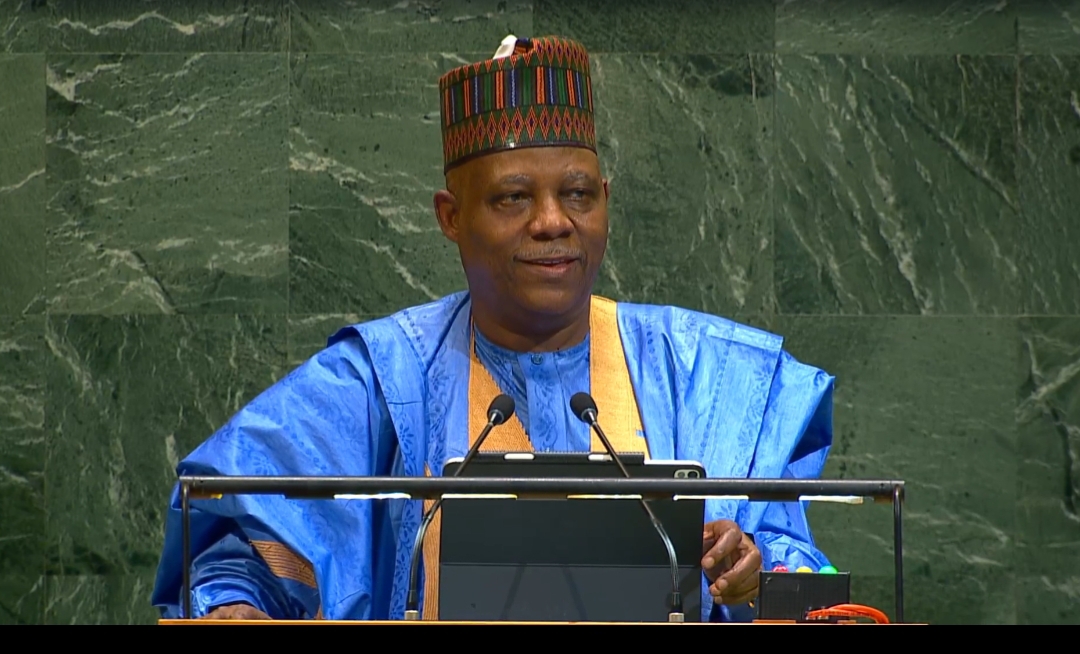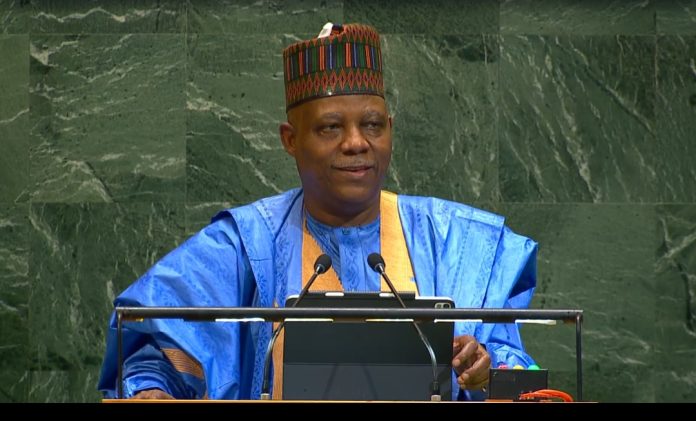
At the 80th session of the United Nations General Assembly on Wednesday, September 24, President Bola Ahmed Tinubu delivered a stern warning, calling for urgent and sweeping reforms of the global body. He cautioned that without immediate restructuring, the UN risks becoming irrelevant, with global events increasingly taking place outside its sphere of influence.
Represented by Vice President Kashim Shettima, President Tinubu outlined four core demands, beginning with Nigeria’s call for permanent membership of the UN Security Council. He argued that the Council must reflect today’s geopolitical realities, not the post-World War II order.
“Nigeria must have a permanent seat at the UN Security Council. This should take place as part of a wider process of institutional reform,” he stated. “The United Nations will recover its relevance only when it reflects the world as it is, not as it was.”
He emphasized Nigeria’s evolution from “a colony of 20 million people” to “a sovereign nation of over 236 million, projected to be the third most populous country in the world, with one of the youngest and most dynamic populations on earth.”
The President expressed deep frustration with the slow progress on critical issues like nuclear disarmament, Security Council reform, and fair access to trade and finance.
He criticized the UN’s “careful diplomatic language” which often masks inaction, stating, “When we speak of nuclear disarmament, the proliferation of small weapons, Security Council reform, fair access to trade and finance… we must recognize the truth. These are stains on our collective humanity.”
Highlighting ongoing suffering in conflict zones, President Tinubu noted that the slow pace of action has caused some nations to look away from the multilateral model. He remarked that key global events and influential voices were beginning to emerge outside the General Assembly hall.
On international conflicts, President Tinubu took a firm stance on the Palestinian issue, calling for a two-state solution as the most dignified path to lasting peace.
“The people of Palestine are not collateral damage in a civilisation searching for order. They are human beings, equal in worth, entitled to the same freedoms and dignities that the rest of us take for granted,” he asserted.
Regarding global financial governance, he proposed establishing an international judicial mechanism to oversee sovereign debt crises. He called this a “sort of International Court of Justice for money,” which would help developing nations escape economic dependency and move beyond the export of unprocessed goods. He stressed that debt relief should be pursued for peace and prosperity, not as charity.
President Tinubu also positioned Africa’s critical mineral wealth as vital to global stability. He urged investment in local processing and fair partnerships in Africa to diversify supply, reduce international tensions, and “shape the architecture for peace and prosperity.” He echoed the UN Secretary-General’s vision that “A.I. must stand for ‘Africa Included’,” calling for expanded access and dialogue to close wealth and knowledge gaps.
On the fight against terrorism, President Tinubu focused on the long-term, ideological battle: “Military tactics may win battles measured in months and years, but in wars that span generations, it is values and ideas that deliver the ultimate victory.”
He closed with a powerful appeal for renewed commitment to multilateralism and human rights. “Nigeria’s commitment to peace, to development, to unity, to multilateralism, and to the defence of human rights is beyond compromise. For none of us is safe until all of us are safe.”
“We must make real change, change that works, and change that is seen to work. If we fail, the direction of travel is already predictable.”



